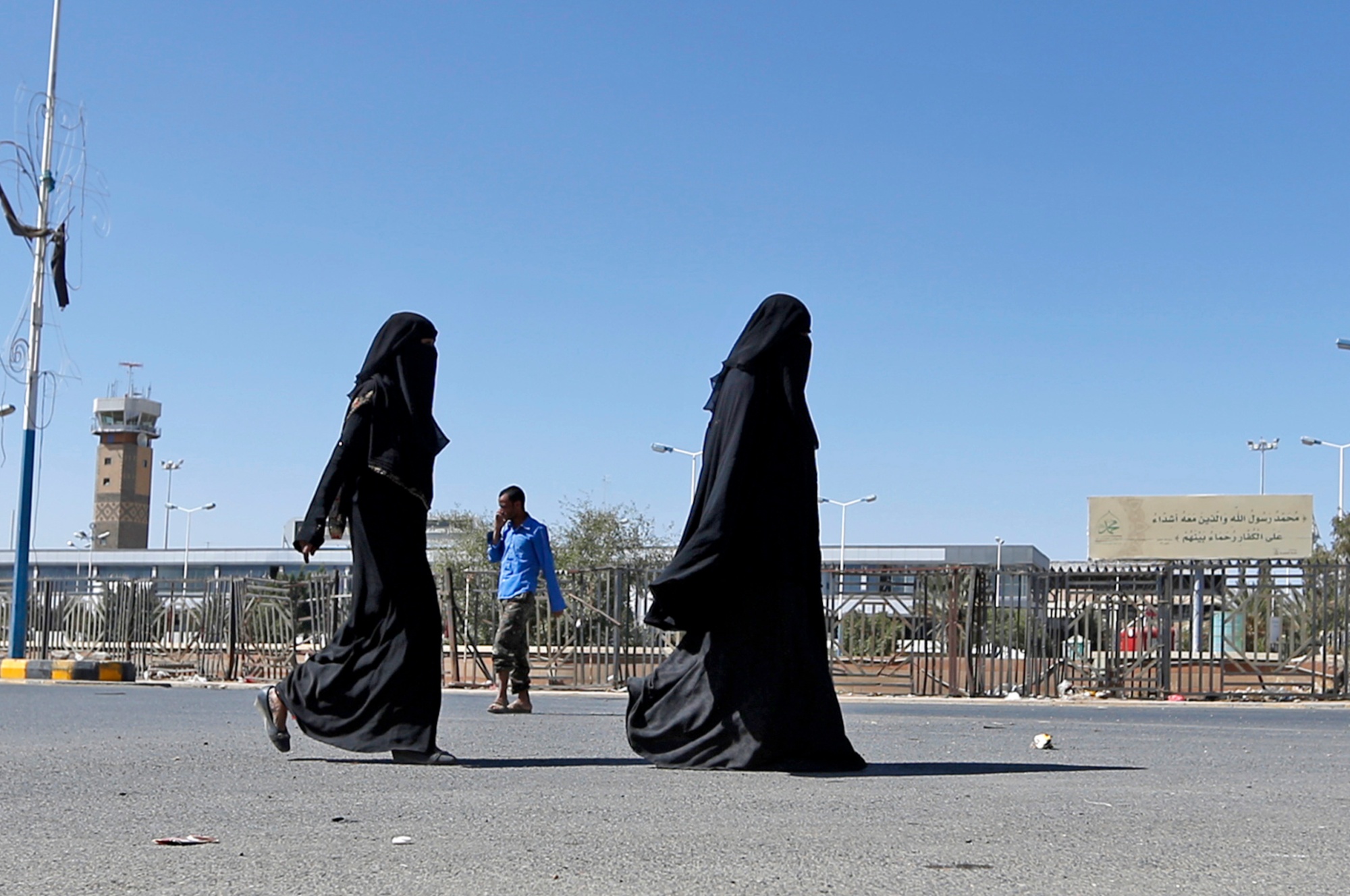Houthis crack down on Sanaa coffee shops open to men and women

Almost every day after work, Hadeel*, 31, goes to a coffee shop in Sanaa with her colleagues to discuss issues at work or just enjoy their time.
Hadeel has been visiting coffee shops since 2012, finding there the freedom to meet with friends and acquaintances of all genders in public.
Stay informed with MEE's newsletters
Sign up to get the latest alerts, insights and analysis, starting with Turkey Unpacked
But after Houthi rebels took control of the Yemeni capital in 2014, things began to change, as the movement has increasingly cracked down on gathering spaces unsegregated by gender. Coffee shops, often frequented by social activists, artists, office workers and youth have become a target.
Last week, the Houthi-run Ministry of Tourism stormed several coffee shops in Sanaa and closed a number of them, sparking anger among people like Hadeel.
The pressure of tradition
"The Houthis stormed coffee shops in Sanaa more than once while I was there," Hadeel told Middle East Eye. "They threatened to close the coffee shops if we kept visiting them with our male colleagues.
"I did not care about the Houthis' threats, and we kept going to coffee shops as we do not have alternative places to meet."
A source in the Houthi Ministry of Tourism confirmed to MEE the recent cafe closures, saying it was because they did not adhere to conditions set by the ministry.
'Killing people everywhere in Yemen... is a huge crime and goes against Islam, but to sit in a coffee shop with your friends is a kind of freedom'
- Hadeel, cafe patron
"Coffee shops should have a separate department for women, and they should not sit with men in the same place, but many in Sanaa do not have this specific area," the ministry source told MEE.
"Some coffee shops violate Yemeni law, and they want to work normally, but we will not allow them until they respect the law and the Yemeni traditions," the source said.
Some Houthi preachers have denounced mixed-gender cafes during Friday sermons.
Hadeel rejects claims that mixed-gender coffee shops violate Yemeni traditions and Muslim teachings, especially as the country continues to experience a deadly conflict pitting Houthis against exiled President Abd Rabbuh Mansur Hadi and his Saudi and Emirati allies.
"We are all Muslims," she said. "I believe that killing people everywhere in Yemen is a huge crime and goes against Islam, but to sit in a coffee shop with your friends is a kind of freedom."
Ahmed* is a 29-year-old employee with an international company who, like Hadeel, regularly frequents cafes.
"I do not think there is any danger coming from those coffee shops, as their customers are educated men and women who have nothing to do with war," he told MEE.
"Houthis believe that mixed-gender cafes may lead men and women to build forbidden relationships. This is their view, they can enforce it on their families - but not on all Yemenis."
Alternative spaces
Coffee shops were a far rarer sight in Yemen before 2011, only starting to spread in Sanaa after a wave of protests that year.
"In 2011, we went to the streets demanding freedom, and women's rights were a main issue," Hadeel said.
"If Houthis keep chasing us everywhere, we will resort to taking to the streets against them. We need open-minded leadership, and we cannot accept this repression."
Unlike many Yemeni men, Ahmed does not chew qat, a narcotic leaf popular in Yemen, and he said he had been going to coffee shops instead since 2013.
"Most Yemenis, like the Houthis, chew qat every day, and they do not want to go out, but I do not chew qat, and I do not like to sit with qat addicts," Ahmed said.
He felt Houthis were treating men who visit coffee shops as less manly than those who spend hours each day chewing qat with other men.
Yet the pressure did not faze him.
"The Houthis closed some cafes and left others alone, so I am still visiting cafes and will keep doing so," Ahmed said.
Accusations of extortion
Last year, Houthis closed a number of coffee shops under the same pretext, but many of them have since reopened their doors.
Fadi*, the owner of a coffee shop in Sanaa, told MEE that the lack of gender segregation was merely a pretext to implement closures, accusing Houthi authorities of seeking to extract money from coffee shop owners.
"Last year, the Ministry of Tourism closed my cafe. I went to the ministry, paid money and then reopened it," he said.
"The same thing is happening nowadays. Those that paid money are working normally," even if their clientele includes both men and women, Fadi said.
"The Houthis do not have sources of income, so they depend of shaking down shops," he said. "I paid taxes and municipality fees, but that is not enough for the authorities, and they try to extort us in new ways."
Fadi said he was very pessimistic about the future. With Houthis constantly pressuring him for more money, he is thinking of shutting down his cafe forever and leaving the country.
"Our incomes go to the Houthis, there are no advantages to working in Yemen," he said. "I am not willing to pay the Houthis any money, so I am planning to sell the cafe and leave Yemen for any other country."
*Names have been changed.
Middle East Eye delivers independent and unrivalled coverage and analysis of the Middle East, North Africa and beyond. To learn more about republishing this content and the associated fees, please fill out this form. More about MEE can be found here.







